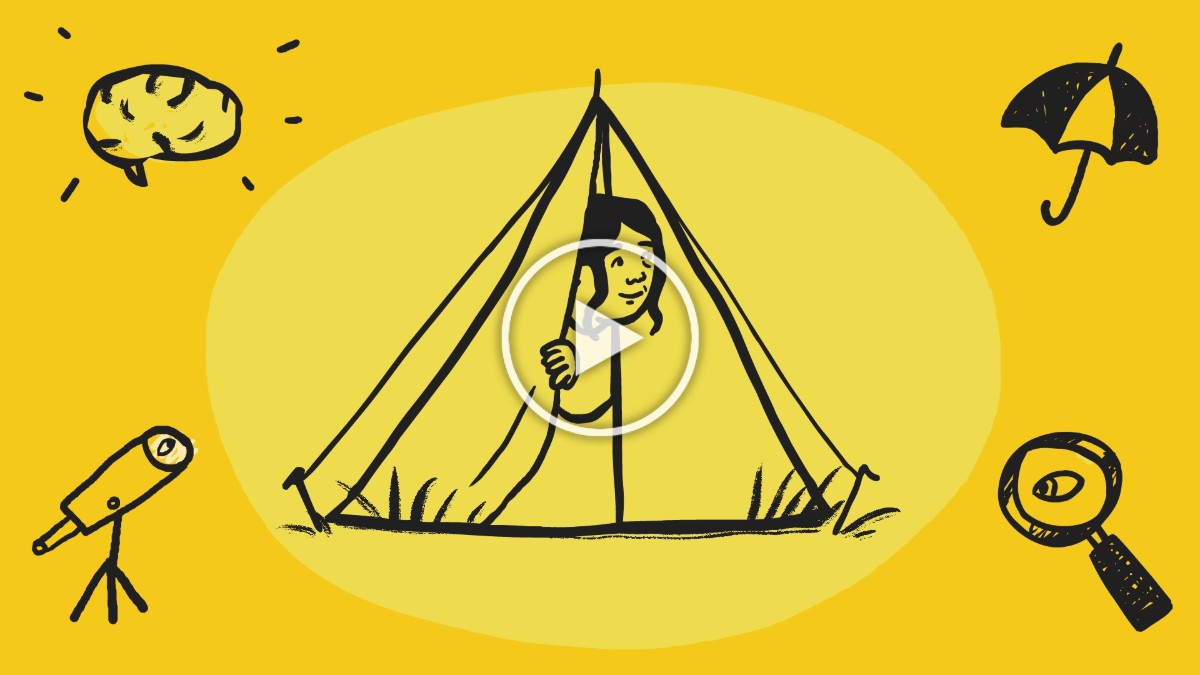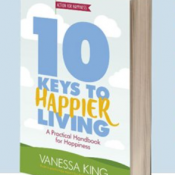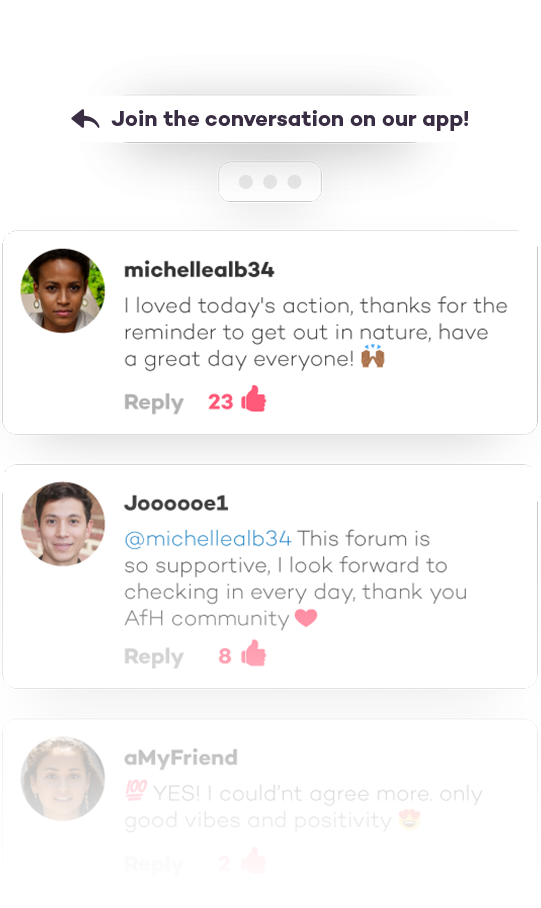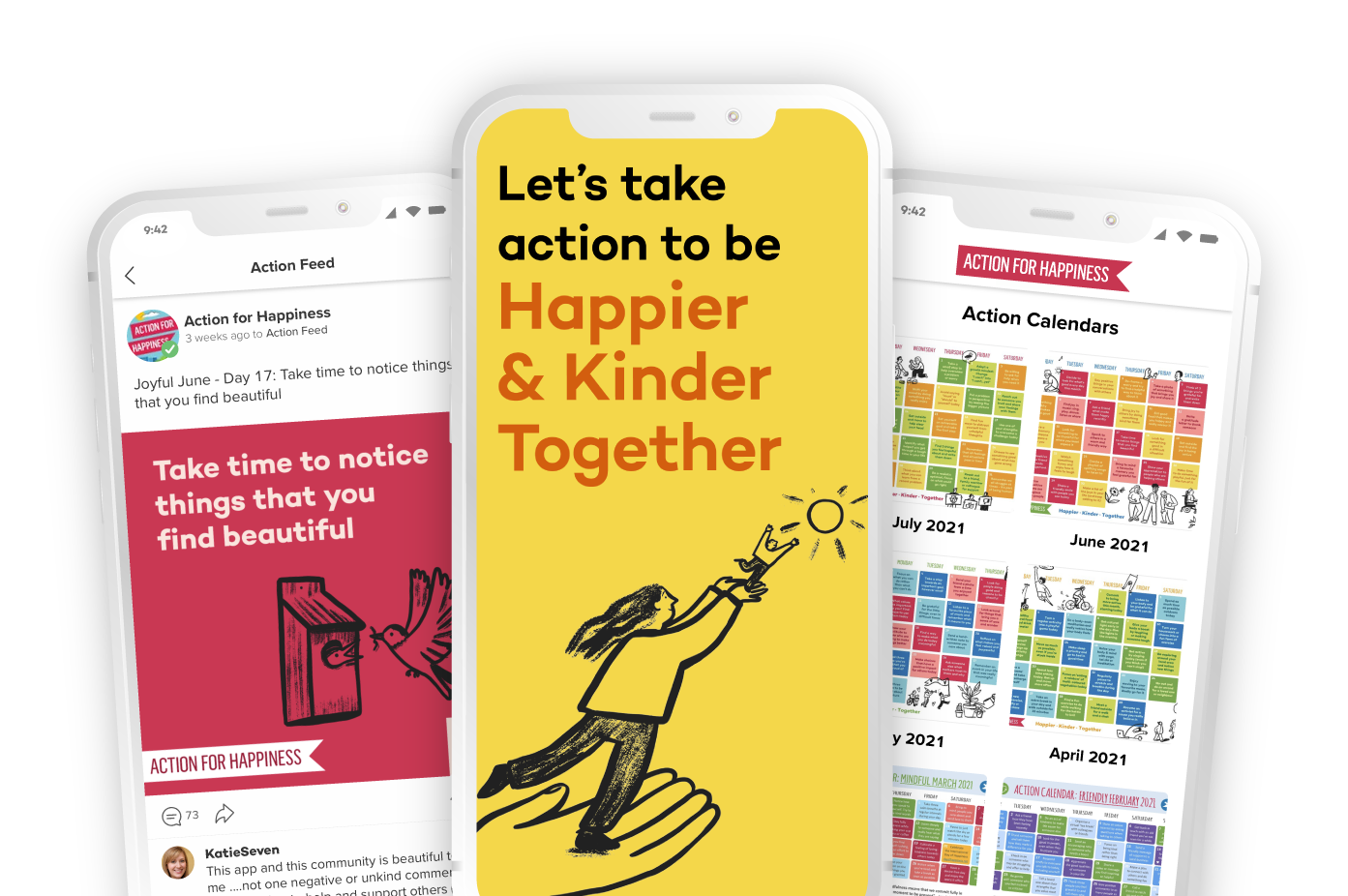Trying Out
Keep learning new things
Fuel for fun, fulfilment, confidence and creativity!
Being open to new experiences and learning fuels our wellbeing, boosts our confidence and our creativity and can be fulfilling – whatever our age. Learning is not just for school but for life – in fact, evidence shows that continuing to learn, even later in life, can help us feel good and function well [1]. It doesn’t mean gaining more qualifications. There are lots of ways to get involved in informal learning of topics or skills we’re curious or passionate about, whether that’s in-person in our community, at work or online. It could be learning more about an area we’re already interested in, honing our skills through a hobby or exploring something completely new. There is always something new we can try or learn!
Why not take action right now? Join Abi, our coach from the 10 Days of Happiness program, for a short video and a quick activity to help you take care of your body today.
Exploring, learning and happiness
Trying new things and learning can have a positive impact on how happy we feel in a range of different ways. In the short term, it can be pleasurable – simply enjoyable or fun, engaging our curiosity or sparking our interest. It can help us build connections with others with shared interests from different corners of our local community or online. In the longer term, it can be a source of meaning and fulfilment, boosting our confidence and helping us develop and fulfil our potential [2]. It’s also associated with more satisfaction in life, a greater sense of purpose and with hope [3].
Human beings have a core psychological need for mastery. It’s integral to our wellbeing. It means feeling a sense of competence, using and developing our skills and capabilities [4]. Exploring our environment, having new experiences, or encountering new perspectives can fuel our own ability to think creatively and problem solve, which can feel good and build our resilience in the face of challenges [5].
New experiences and learning throughout life, from early childhood to old age, generates new brain cells and new neural connections, strengthening our brain. Whilst this may be slower as we get older, it still continues and is associated with a happier, healthier old age [6].
Reflection: What’s something new you’ve tried or learnt recently? What’s something new you can try or learn this week?
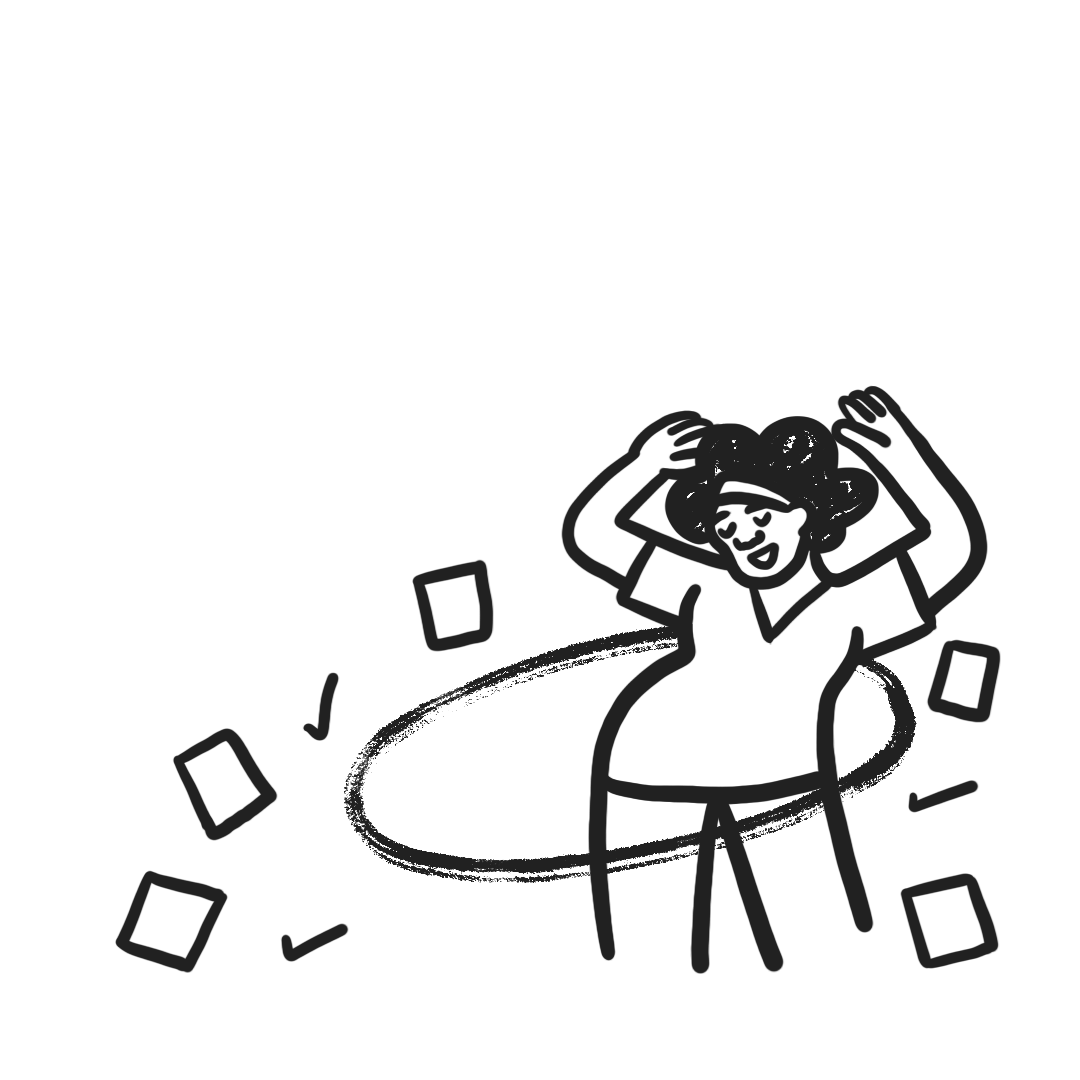

Mindsets
Learning something new can feel challenging as we can feel ineffective and of course, make mistakes - that’s a normal part of the learning process. It’s through sticking with it that we gradually build our capability, confidence and resilience, and find pleasure and fulfilment in our expanding our horizons.
The psychologist Carol Dweck and her colleagues found that the mindset we adopt towards learning something new has a significant effect on how much we persist in our efforts and therefore how much we learn – at whatever age or stage we are [7]. If we expect ourselves to ‘get it all right the first time’ or even the second, third or fourth time, we can feel embarrassed, ashamed or annoyed when we mess up and so we give up. That’s known as having a fixed mindset towards what we are trying. Whereas when we adopt a ‘growth mindset’ we recognise that mistakes and struggles are a part of the process of learning something new, we are much more likely to keep trying and improve. So, for example, instead of saying to our self “I’m no good at this”, we can add a “yet” to the end of that sentence: “I’m no good at this…yet”. That simple change can make all the difference. Try it!
Activity: Next time you are frustrated trying to do or learn something new – try repeating to yourself “I’m learning so I’m not good at this…YET, but I can improve”. See what you notice.
Find your flow
We don’t always get to choose the work we do or we may not find it fulfilling, or we may not be doing paid work. However, all of us can find a hobby we love. Our hobbies are a great way of pursuing what naturally interests and engages us – and that’s good for our wellbeing [8]! Our hobbies can be a source of pleasure and a great way to learn, build competence and confidence and connect with others who share our passion. They can also be a source of flow.
Flow is an active state made popular by psychologist Mihalyi Czikszentmihalyiand has been shown to have benefits for our happiness and wellbeing [9]. Different to passive relaxation, it’s a deep focus on and absorption in something we are doing, such that we lose a sense of time and what’s going on around us and our mind doesn’t wander to worries. In the flow state typically our level of skill is just matched to what we are doing so it’s challenging, but not stressfully so and not so easy that we switch off from the task at hand.
Top tips for finding flow:
- Find a regular time to get engaged in a hobby that takes some skill. For example, it could be drawing, music, sport, mending or making things.
- Minimise distractions and get stuck in.
- Try going just beyond your comfort zone on something that you are curious about or interested in.
Finding your flow could just be a path through which you find fulfilment!
Reflection: What’s a hobby you’d love to try? When could you try it?
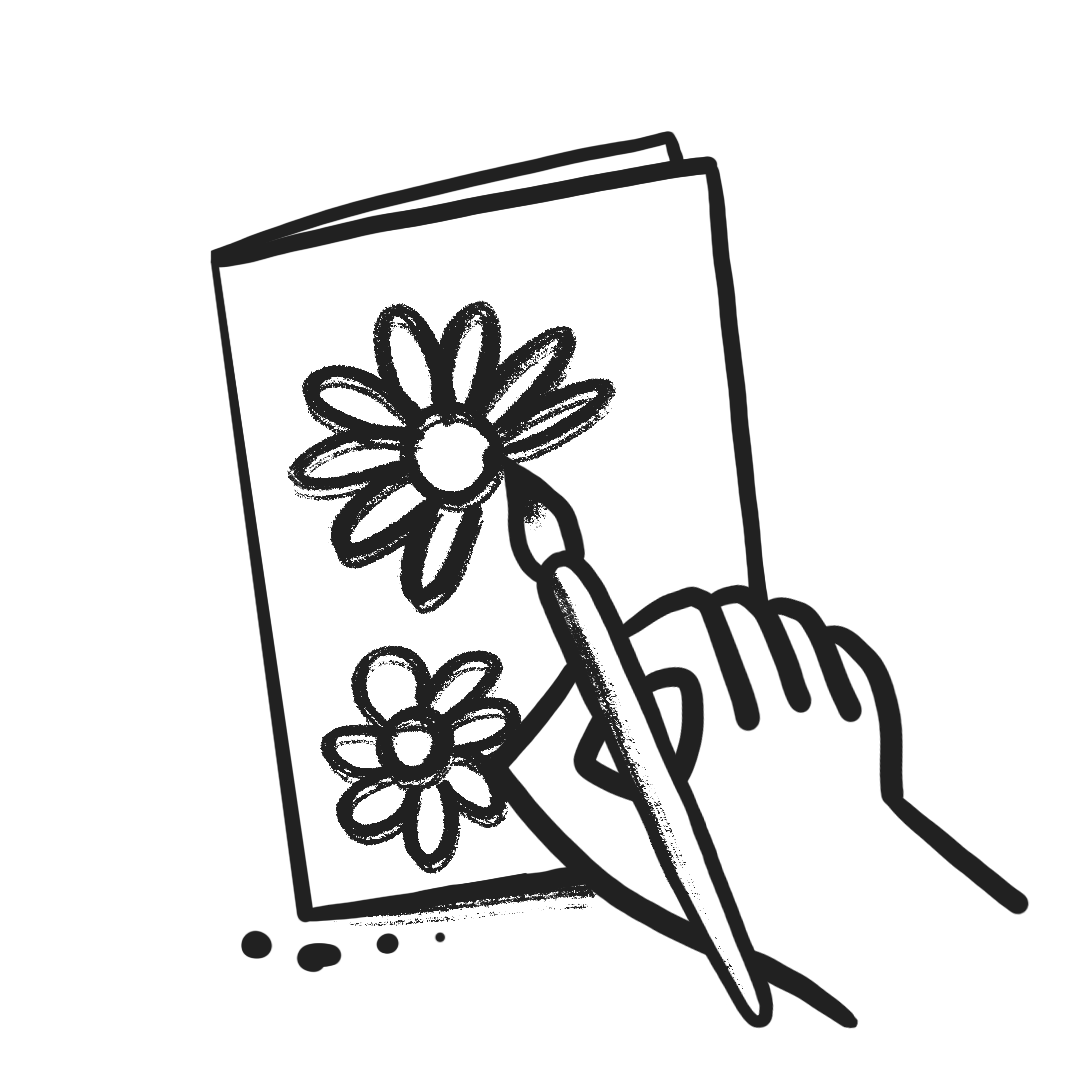

Get curious & creative
Curiosity is associated with happiness and fulfilment. Curious people may even live longer! It’s a foundation for learning, keeping our mind engaged and active and helping us explore new ideas, places or activities. It can lead us to find our interests, hobbies and passions and help us understand and connect with others [10]. It’s fuel for creative thinking too!
Cultivating our curiosity can help us think and act more flexibly and stretch our familiar boundaries, which can boost our resilience. It is often easy and comfortable to stick to what we know and our human brain likes certainty - that way it knows what to do and what’s safe. So when we try something new, it’s natural to be wary or for it to feel scary, uncomfortable or both [11].
With curiosity, you can start small. Perhaps get curious about a new type of food, try a different route for a journey you make regularly, or listen to a different news or music channel. We may not always like what we’re trying at first – but we can use curiosity to help us. Asking what, why, how, where and who are good words to kick-start being curious!
For example, if it’s a new food – How is it made or grown? Where does it originate from? How is it usually served or eaten? How would you describe the smell, texture and taste? What does it remind you of? There are also apps we can use to help us explore the world around us – such as to identify plants, bird sounds or the stars in the sky.
It can often help (and can be a creative exercise) to approach something new with playful ‘fresh eyes’ for example asking yourself ‘How would a child look at or approach this?’ Or ‘What would someone from a different culture (or even planet) see?’.
Activity: Try noticing something new. On a journey you take regularly – perhaps to work, college or to the shops – find three things which spark your interest that you haven't noticed before. What can you find to be curious about these?
References
1 Narushima, M., Liu, J., & Diestelkamp, N. (2018). Lifelong learning in active ageing discourse: its conserving effect on wellbeing, health and vulnerability. Ageing & Society, 38(4), 651-675; Jenkins,
A., & Mostafa, T. (2015). The effects of learning on wellbeing for older adults in England. Ageing and Society, 35(10), 2053-2070; Mental Health Foundation (2011) Learning for Life: Adult learning, mental health and wellbeing. London: Mental Health Foundation.
2 Ryff, C. D. (2014). Psychological well-being revisited: Advances in the science and practice of eudaimonia. Psychotherapy and psychosomatics, 83(1), 10-28.; Aked, J., Marks, N., Cordon, C. & Thompson, S. (2008). Five Ways to Wellbeing: A report presented to the Foresight Project on communicating the evidence base for improving people’s well-being. Centre for Well-being, nef (the new economics foundation); King, V. (2016) Ten Keys to Happier Living – A Practical Handbook for Happiness. Headline Hachette
3 Sabates, R, Hammond, C (2008) The impact of lifelong learning on happiness and wellbeing, NIACE and Institute of Education.
4 Ryan, R.M. & Deci, E.L. (2017). Self-Determination Theory – Basic Psychological Needs in Motivation, Development and Wellness. Guildford Press; Vansteenkiste, M., Ryan, R.M. & Soenens, B. (2020). Basic psychological need theory: Advancements, critical themes, and future directions. Motivation and Emotion 44, 1–31
5 Feinstein, L, Vorhaus, J, and Sabates, R, (2008) Mental Capital and Wellbeing: Making the most of ourselves in the 21 st Century, Learning through life: Future challenges, Foresight, Government Office for Science.; Sabates, R, Hammond, C (2008) The impact of lifelong learning on happiness and wellbeing, NIACE and Institute of Education.
6 Jenkins, A., & Mostafa, T. (2015). The effects of learning on wellbeing for older adults in England. Ageing and Society, 35(10), 2053-2070; Narushima, M., Liu, J., & Diestelkamp, N. (2018). Lifelong learning in active ageing discourse: its conserving effect on wellbeing, health and vulnerability. Ageing & Society, 38(4), 651-675.
7 Dweck, C. (2006, 2017) Mindset: The New Psychology of Success. Robinson; Dweck, C. (2015) Carol Dweck revisits the Growth Mindset. Education Week. Retrieved from: http://www.edweek.org/ew/articles/2015/09/23/carol-dweck-revisits-the-growth-mindset.html
8 Ryan, R.M. & Deci, E.L. (2017). Self-Determination Theory – Basic Psychological Needs in Motivation, Development and Wellness. Guildford Press
9 Csikzentmihaly, M. (1990). Flow: The Psychology of Optimal Experience New York: Harper & Row (Published in the UK as Flow: The classic work on how to achieve happiness. Rider); Csikszentmihalyi, M. (1997). Finding flow: The Psychology of Engagement With Everyday Life. Basic Books.
10 Kashdan, T.B. (2009) Curious? Discover the Missing Ingredient to a Fulfilling Life. William Morrow/Harper Collins.; Kasdan, T.B & Silvia, P.J. (2009) Curiosity and Interest: The Benefits of Thriving on Novelty and Challenge. The Oxford Handbook of Positive Psychology. pp367-374
11 Pine, K., & Fletcher, B. C. (2014). Time to shift brain channels to bring about effective changes in health behaviour. Perspectives in Public Health, 134(1), 16-17.


Take the 10 Keys to Happier Living online coaching programme.

